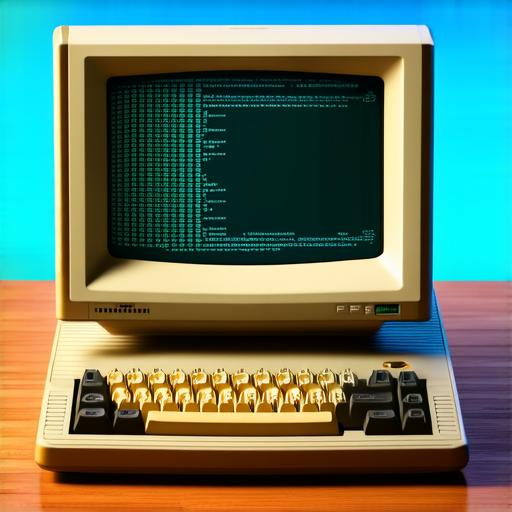When people talk about software development, they often refer to the creation of programs and applications that run on computers, smartphones, and other electronic devices. But where did the term “software” come from? Why do we call it software instead of just calling it a program or an application? In this article, we will explore the history and meaning behind the word “software,” and how it applies to modern-day software development.
The History of Software: From Mainframe Computers to Personal Computers
The term “software” first appeared in 1957 when John McCarthy, a computer scientist, used it to describe the programs that ran on the Massachusetts Institute of Technology’s (MIT) computer called the Interactive Mathematics General Purpose Symbolic Instruction Code and Language Program (IMGICLAP). This was a significant moment in the history of software development because it marked the beginning of the separation between hardware and software.
Before this point, computer programs were typically written in machine code that was specific to each hardware platform. This meant that if you wanted to run your program on a different computer, you would have to write a new version of the program in a different machine code language. Software development became much more difficult and time-consuming as a result.
With the introduction of software, programmers could write their programs in a higher-level language that was independent of hardware. This made it easier for them to develop programs for multiple platforms, which paved the way for the modern software development industry.

What is Software? Defining the Term and its Purpose
Now that we know where the term “software” comes from, let’s define what it means in the context of software development. In simple terms, software refers to the set of instructions that tell a computer what to do.
There are many different types of software, including operating systems, productivity applications, games, and more. Software can be classified into two main categories: system software and application software.
Why Do We Call it Software? Understanding the Term and its Purpose
Now that we have a basic understanding of what software is and its purpose, let’s explore why we call it “software” instead of just calling it a program or an application. The answer lies in the way that software is developed and maintained.
Software development involves writing code, testing the code, debugging the code, and eventually deploying the code to a computer or device. This process requires careful planning, attention to detail, and collaboration between developers, project managers, and other stakeholders.
One of the key benefits of software development is that it allows for flexibility and adaptability. As requirements change, software can be updated and modified to meet new needs. This makes software development an ongoing process that requires ongoing maintenance and support.
Case Studies: Real-World Examples of Software Development
Now that we have a better understanding of the term “software” and its purpose let’s look at some real-world examples of software development to see how this process works in practice.
1. Building a Web Application
Imagine you are building a new e-commerce website for a small business. You would start by defining the requirements for the site, such as what products to sell, how to accept payments, and how to ship orders.
Next, you would write the code for the site, using HTML, CSS, and JavaScript to create the layout and functionality of the site. This process involves testing the code, debugging any issues that arise, and making adjustments as needed.
Once the site is built, you would deploy it to a server so that it can be accessed by customers. You would also need to set up payment processing and shipping systems, which would require additional software development work.
2. Developing a Mobile App
Now imagine you are developing a new mobile app for smartphones and tablets. The process would be similar to building a web application, but with some key differences.
For example, you would need to develop the app for multiple platforms, including iOS and Android. This would require writing code in different languages and adhering to different development guidelines.
You would also need to consider the unique capabilities of mobile devices, such as touchscreens, GPS, and cameras, which would require additional software development work.
3. Writing a Game
Finally, imagine you are writing a new video game for consoles or computers. This process would involve a lot of creativity and innovation, as well as technical expertise in programming and game design.
You would need to write code that controls the behavior of characters, manages levels, and handles user input. You would also need to create art assets, such as images and sound effects, which would require additional software development work.
The Importance of Software Development Skills
As we have seen in the previous section, software development is a complex and dynamic process that requires a wide range of skills. These include programming skills, problem-solving skills, collaboration skills, and attention to detail.
In order to succeed as a software developer, it is essential to have a strong foundation in these skills. This includes learning programming languages, such as Python, Java, or C++, understanding data structures, algorithms, and computer architecture.
It also requires the ability to work well with others, including project managers, designers, and other developers, as well as the ability to communicate effectively and document code and processes.
Summary: Why Do They Call it Software? Understanding the Basics of Software Development
In this article, we have explored the history and meaning behind the term “software” and its application in modern-day software development. We have looked at real-world examples of software development to see how this process works in practice and have discussed the importance of software development skills for success in this field.
By understanding the basics of software development, we can appreciate the complexity and importance of this work and the many ways that software has transformed our lives. Whether you are a seasoned software developer or just starting out, there is always more to learn and explore in this fascinating field.
